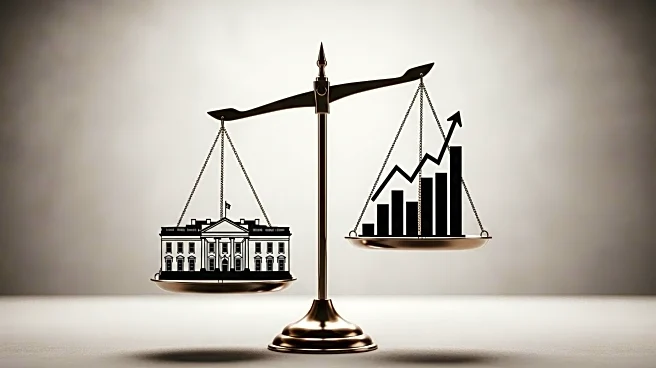What's Happening?
The White House has claimed a dramatic increase in assaults on Immigration and Customs Enforcement (ICE) agents, stating a rise of over 1,000 percent. However, an analysis of court records indicates a much smaller increase, approximately 25 percent, in charges for assault against federal officers. Despite the White House's assertions, there is no public evidence supporting such a significant spike. The Department of Homeland Security has not provided data to substantiate these claims, leading to skepticism about the accuracy of the reported figures. The situation has sparked protests and debates about the credibility of federal government statements.
Why It's Important?
The discrepancy between the White House's claims and actual data raises concerns about the reliability of government communications, potentially undermining public trust in federal agencies. This issue is significant for law enforcement credibility, as exaggerated claims can affect cooperation between citizens and authorities. The narrative of increased assaults on ICE agents may influence public perception and policy discussions regarding immigration enforcement and the safety of federal officers. The broader implications include potential impacts on immigration policy and enforcement strategies, as well as public sentiment towards federal law enforcement agencies.
What's Next?
The ongoing debate over the accuracy of assault statistics may lead to further scrutiny of government data and claims. Stakeholders, including lawmakers and civil rights groups, may demand transparency and accountability from federal agencies. The situation could prompt discussions on the need for accurate reporting and data verification in government communications. Additionally, the issue may influence future policy decisions regarding immigration enforcement and the protection of federal officers.
Beyond the Headlines
The controversy highlights ethical concerns about the use of data in political narratives and the potential consequences of misleading information. It underscores the importance of maintaining integrity in government communications and the role of media and civil society in holding authorities accountable. The situation may also reflect broader challenges in balancing security measures with civil liberties and public trust.









